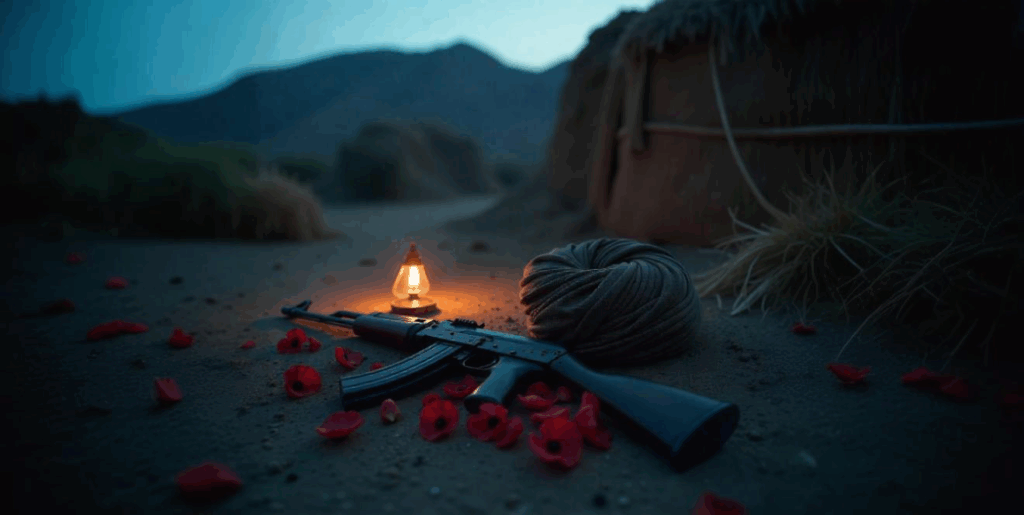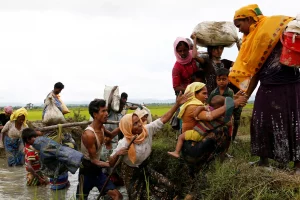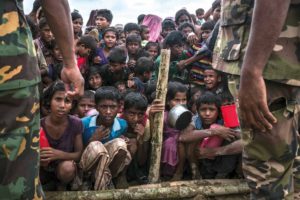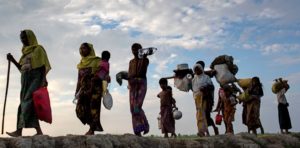This piece was previously published in Italian (ISPI, 14 August 2025). Translation by Norah Niland.

Four years after their return to power, the Taliban are consolidating the Islamic Emirate of Afghanistan. The Supreme Leader increasingly directs the country’s political course by centralising power, with an authoritarian drive also manifested in gender persecution — sanctioned by the recent arrest warrants issued by the International Criminal Court. The de facto government has received its first formal recognition from the Russian Federation, along with the normalisation of relations with neighbouring countries. This process coincides with a growing rift with the Euro-Atlantic community, which is deepening its diplomatic and financial disengagement, frustrated by the pragmatic wing of the Taliban’s inability to revise the most oppressive laws. The United States has restructured the entire humanitarian ecosystem, ending financial aid — with devastating consequences for the population, which is facing a dire humanitarian crisis. This is exacerbated by the flaws in an economic system that shows some signs of macroeconomic recovery but is unable to redistribute wealth or reduce inequality, hindered by the freezing of the central bank’s reserves, lack of liquidity, and the isolation of the banking system.
The West “withdraws,” but the Emirate gains its first formal recognition
Diplomatically, 2025 has been marked by the recognition of the Emirate by Moscow, the normalisation of relations with regional countries, and increased estrangement from the Euro-Atlantic community — further driven by the Trump administration’s decision to end humanitarian aid.
A chapter seems closed: Western diplomats had long waited for the pragmatic Taliban — a heterogeneous coalition of factions — to re-establish promises aimed at rebuilding reasonable relations with the West and accessing new resources. They had long assured that secondary schools for girls, closed for over 1,400 days, would reopen, that segregationist policies would be revoked or amended, and that the extremist, authoritarian, and repressive turn would be mitigated. None of this has happened. The pragmatic wing lost credibility and was marginalised by Amir Haibatullah Akhundzada, who used both financial tools and radical, discriminatory decrees — particularly targeting women — to undermine Western outreach and to reclaim total control.
Relations with the West will likely remain frozen — if not worsen. Few European diplomats today expect any short-term changes. On the contrary, some countries are scaling down diplomatic presence in Doha, the Qatari capital that has hosted many Western missions since the Islamic Republic’s collapse in 2021.
The UN reaffirms its objectives: a peaceful Afghanistan, reintegrated into the international community and respecting its international obligations. To achieve this, it promotes a comprehensive, structured multilateral approach, including technical working groups on key issues like the private sector and narcotrafficking. UN Special Representative Roza Otunbayeva emphasised these goals during her 23 June briefing to the UN Security Council. She acknowledged concerns about the strategy’s effectiveness but warned that without international engagement, the situation would be far worse. However, the UN continues to face fallout from the sometimes flawed management of the 2024 Doha meetings, which excluded civil society and women representatives from official events. This deepened the divide between regional pragmatism and Western value-based approaches. A year later, coordinated diplomacy is being replaced by bilateral, often opaque dialogues — such as Germany’s informal deal to repatriate Afghan migrants in exchange for diplomatic concessions, including, it seems, accepting the presence of IEA functionaries in Afghan diplomatic missions in Germany.
While the Euro-Atlantic community, frustrated by the limited results in dealing with a regime that is multifaceted yet seemingly immovable in its policies of gender persecution, is pulling back diplomatically, countries in the region are increasingly normalising relations. “At least 17 countries have established embassies in Taliban-run Afghanistan. Taliban-appointed diplomats also represent Afghanistan in most capitals across Asia, albeit at chargé d’affaires level,” notes the International Crisis Group. The normalisation of diplomatic relations with the Taliban following their takeover in 2021 has occurred gradually but continues. A prime example is the decision by the Russian government to formally recognise the Emirate. It is the first country in the world to do so — and it will not be the last.
Recognition by the Russian Federation
Since 3 July 2025, the white flag bearing the shahada (Islamic declaration of faith) flies over the former Afghan embassy in Moscow, replacing the tricolour of the Islamic Republic that collapsed in August 2021. According to Russia’s Foreign Ministry, the recognition “will boost productive bilateral cooperation.” Afghanistan’s de facto foreign minister Amir Khan Muttaqi called it “a courageous step” and expressed hope it would inspire others.
The recognition of the Emirate is part of a very long political and diplomatic process — certainly not a turning point. In this gradual approach, a key role over the years has been played by Zamir Kabulov, the special envoy of President Putin. With a long history in the country dating back to the Soviet occupation, when he was a diplomat at the Soviet embassy in Kabul, Kabulov has been among the most insistent voices urging Putin to open up to the Taliban — even against the advice of intelligence services. And not just recently. It is also thanks to him that Moscow has been able to overcome what Russian scholar Vladimir Boyko has called a true “Afghan syndrome,” a legacy of the failed Soviet occupation that began in December 1979 and ended in February 1989. That syndrome was still evident during the time of the first Emirate. But with the overthrow of the first Taliban government in 2001 and the subsequent NATO presence, things began to change. Moscow initially adopted a wait-and-see approach, eventually beginning to build ties with the Taliban, who at the time were the armed opposition to the Kabul government — particularly starting in 2014, with the beginning of NATO’s long withdrawal. In 2016, Kabulov set the tone in an interview with Turkey’s Anadolu Agency: “The majority of the Taliban, including the leadership,” he said, are merely “a local force” that “has abandoned the idea of global jihad.” Moscow’s Foreign Ministry then stated the need for “a flexible approach to remove certain figures from the UN sanctions list.” Already five years before their return to power, then, the Taliban were treated as legitimate interlocutors — even as allies against global jihadist groups (like the Islamic State, al-Qaeda, and others), which were considered a serious threat to the outermost borders of the Russian sphere of influence, and as partners in preventing the inflow of opium and its derivatives into the region. These remain key concerns for Moscow, as they do for many other countries in the region. It is no coincidence that Kabulov himself recently called for the delivery of military aid to the Taliban for counterterrorism purposes.
Kabul’s role in the fight against the local branch of the Islamic State — the Islamic State Khorasan Province (ISKP or ISIS-K) — as well as the de facto government’s “desire to connect Central Asia to South Asia through various mega-projects in electricity, trade, oil pipelines and the Trans-Afghan Railway, have served a key role in driving Afghanistan and nearby countries closer together,” was recently highlighted by Ibraheem Bahiss of the International Crisis Group. According to him, “countries across South and Central Asia are likely to continue exploring ways to deepen engagement with the Taliban-led government” and follow Russia’s lead in formally establishing diplomatic relations — including China, which in December 2023 became the first country to officially accredit a Taliban diplomat as ambassador, and which the de facto Afghan authorities regard as a key economic partner.
No Real Opposition
The Taliban’s skill in diplomatically “sealing” all borders — through agreements, meetings, and trade exchanges that also prevent potential breaches through which weapons for opposition forces could enter — makes the prospect of an armed resistance highly unlikely, at least for now. Armed opposition is deeply fragmented, with minimal financial resources and virtually no regional or political backing, especially as even Tajikistan appears to have reached a compromise with Afghanistan’s de facto authorities.
In its first two years of Emirate rule, the local Islamic State branch (ISKP) seriously attempted to undermine the regime through military actions, as well as a calculated “defamation” campaign via jihadist propaganda channels. But both efforts proved futile. Contrary to ISKP’s intentions, the Emirate is increasingly viewed by the jihadist ecosystem as a true Islamic government — one untainted by compromise with the “corrupt West” and capable of “staying the course” despite external pressure. Militarily, ISKP has suffered from Taliban pressure, though it remains capable of troubling foreign governments due to its ability to plan and carry out terrorist attacks. According to a report published in February by the United Nations team tasked with monitoring sanctions, ISKP still represents “the greatest extraregional terrorist threat” and the most serious danger to the Taliban, ethnic and religious minorities, the United Nations, foreign nationals, and diplomats in Afghanistan.
Gender Persecution
Ties between countries in the region and the Emirate have also been strengthened by a recent decision by judges at the International Criminal Court, who on Tuesday, 8 July, issued arrest warrants for Haibatullah Akhundzada, the supreme leader of the Taliban, and Abdul Hakim Haqqani, Chief Justice. According to the Court’s judges, there is sufficient evidence to believe that the two “committed — by ordering, inciting, or soliciting — the crime against humanity of persecution.” Persecution “on the basis of gender, against girls, women, and others who do not conform to the Taliban’s policies on gender and identity.” These acts include “direct violence, but also systemic and institutionalised harm, including the imposition of discriminatory social norms.” The warrants for the Amir al-Mu’minin, the Commander of the Faithful — who dictates the Taliban’s hardline, isolationist policy from Kandahar — and for Abdul Hakim Haqqani — author of one of the few notable works on the Emirate’s institutions — only partially dampen the celebrations with which the Taliban have welcomed Moscow’s recognition, and with which they are currently marking four years in power.
According to the Emirate’s spokesperson, the Taliban do not recognise any institution called the International Criminal Court, “nor do we have any obligations toward it,” while the decision to “labelling the laws of Islamic Sharia as inhumane and oppressive” is seen only as “open hostility and hatred toward the sacred religion of Islam.” Human rights organisations, on the other hand, have welcomed the move, seeing the warrants as at least a symbolic break in a cycle of impunity that has lasted far too long. For Richard Bennett, the UN Special Rapporteur on the situation of human rights in Afghanistan — who was ultimately denied access to the country by the de facto authorities — the decision is historic. It aligns with the findings of his most recent report, presented to the UN on 11 June, and focused on access to justice for women and girls: “The Taliban are weaponising the legal and justice sector in Afghanistan as part of their efforts to consolidate a system of institutionalised gender oppression, persecution, and domination,” Bennett stated at the time.
According to Rawadari, an organisation that monitors the denial of rights in Afghanistan and includes among its members Shaharzad Akbar, the former head of the Afghanistan Independent Human Rights Commission, the action by the International Criminal Court “represents an important step toward holding those responsible for crimes committed in this country accountable, and could pave the way for judicial proceedings in other cases related to international crimes.” Rawadari interprets the Court’s decision as an indirect response to Russia’s recent announcement: “Recognising the Taliban not only obstructs justice, but also enables the continuation and support of widespread human rights violations.”
However, the organisation also emphasises “the need to address all cases related to international crimes in this country.” Alongside other Afghan organisations — Afghanistan Human Rights and Democracy Organisation (AHRD), Organisation for Policy Research and Development Studies (DROPS), and Human Rights Defenders Plus (HRD+) — Rawadari recently announced the launch of a special session for Afghan women at the Permanent Peoples’ Tribunal (PPT), an initiative aimed at countering impunity for gender persecution in Afghanistan.
“With the launch of this session, Afghan civil society and women’s rights groups aim to create a channel to hold the Taliban accountable for their crimes and demand justice, to raise the alarm about the normalisation of the Taliban’s oppression of women, and to give women and girls the chance to be heard worldwide,” reads the website of the Permanent Peoples’ Tribunal — the international people’s tribunal founded by Lelio Basso, which deals with serious human rights violations, crimes against humanity, war crimes, and genocide.
The arrest warrants issued by the International Criminal Court have been welcomed by civil society, the Afghan diaspora, and many human rights organisations, for their immense symbolic and practical value and for the clear message they carry: “The dire situation of Afghan women and the atrocities committed by the Taliban have not gone unnoticed.” Many regional countries will likely disregard the warrants, but for others, they could serve as a disincentive to any potential normalisation of relations.
Inside Afghanistan, however, the effects are more complex, as the warrants reinforce the Taliban’s perception that they remain at war with the West. They have also led to a further tightening of repression. Immediately after the Court’s announcement, the activities of the muthasibin — officials of the Ministry for the Promotion of Virtue and Prevention of Vice, tasked with enforcing laws, monitoring morality, and, as their spokesperson Saif-ul-Islam Khyber explained to us in Kabul last October, warning and advising where necessary — began to intensify. According to many testimonies, these interventions are increasingly forceful. These social control activities add to the repressive efforts of the security apparatus, which is blamed for many of the ongoing rights violations.
The latest human rights report by UNAMA (the UN Assistance Mission in Afghanistan) was published just a few days ago. It covers the period from April to June 2025 and includes a significant new development compared to previous reports, which have all been marked by incidents and trends showing continued rights violations in the country: in May, some Afghan female employees of the United Nations received direct death threats. However, the spokesperson for the Ministry of the Interior, Abdul Mateen Qani, denied any such threats, adding that “the ministry has an independent department dedicated to this issue, and we have a strategic plan for protection and security, so there is no threat to them in any area.”
The Humanitarian Crisis
The activities and effectiveness of the humanitarian ecosystem have been severely compromised by the decision of the Trump administration to halt nearly all financial aid, despite the population’s needs remaining critically unmet, with at least half the population requiring basic assistance. In his June report on the situation in Afghanistan, UN Secretary-General António Guterres noted that the decrease in foreign funding for humanitarian aid has “further worsened the disastrous economic situation of millions of Afghans,” who are suffering “multiple challenges,” including widespread poverty, limited access to basic services, natural disasters, and the oppressive Taliban regime. For the current fiscal year, the United Nations Office for the Coordination of Humanitarian Affairs (OCHA) requested $2.42 billion from donors to support life-saving humanitarian services for 22.9 million people in Afghanistan. However, the United States has ceased humanitarian aid to Afghanistan through Executive Order No. 14169, signed by President Trump and titled “Re-evaluating and Realigning United States Foreign Aid.”
This decision has had profound repercussions for the Afghan population, as described by Kate Clark of the Afghanistan Analysts Network. In 2024, the United States was in fact the main donor to the UN’s Humanitarian Response Plan, accounting for 45% of total funding with a contribution of $736.6 million. Historically, the US has played a central role: according to OCHA, it has been the largest donor to Afghanistan’s humanitarian response since 2013, and was vital in emergency situations, including famine prevention in 2021 and 2022 through robust support for food security and nutrition interventions. The loss of such a key donor, as noted in the latest report by SIGAR (the Special Inspector General for Afghanistan Reconstruction of the US Congress), has forced OCHA to scale back its efforts, now targeting not 22.9 million people but 12.5 million among those it considers in severe need. The funding request has also been lowered from $2.42 billion to $1.62 billion.
The Trump Administration Ends Financial Aid
The consequences of the Trump administration’s decision will need to be assessed over the medium to long term, but they have already begun to unfold, and the main United Nations agencies are warning of the danger: following Washington’s announcement, the World Food Programme stated that the halt in funding “could amount to a death sentence for millions of people suffering from extreme hunger and malnutrition.” In June, the agency had to suspend monthly nutritional support for around 100,000 Afghan children and 150,000 pregnant and breastfeeding Afghan women. The World Health Organization (WHO) announced it had to close 422 health facilities since the United States withdrew its financial support, affecting approximately 3 million people across 30 provinces. In May, the United Nations Population Fund (UNFPA) said it could no longer support 500 of the 900 clinics it had been funding before the cuts.
The multiple crises weighing on the country are further exacerbated by return migration flows, particularly from Iran and Pakistan, the two countries that have taken in the largest numbers of Afghan migrants over the decades. In recent months, both have increased repatriations, pushbacks, and even forced deportations. Recently, the International Organization for Migration (IOM) warned that Afghanistan is not able to absorb the 1.9 million Afghans forced to return from Iran and Pakistan in 2025 alone. The UNHCR representative in Kabul also urged the international community to respond with emergency aid and long-term support, stressing that “the decline in international support is compounding the complex and overlapping crises in Afghanistan.” Without immediate and substantial funding — according to the UNHCR, which on 4 July issued a call for additional funding — the scale of returns could destabilise the already fragile situation in the country.
The new position of the United States government — which had spearheaded the NATO military intervention and later the humanitarian engagement of the Euro-Atlantic community also after August 2021 — is, however, clear. It was explicitly expressed on 7 July 2025, when the US was one of only two UN member states to vote against a resolution calling for increased humanitarian aid to Afghanistan. The resolution passed with 116 votes in favour, 2 against, and 12 abstentions. The US State Department commented on the decision as follows: “It is the position of the United States that we cannot continue to support the Taliban while simultaneously demanding that they uphold Afghanistan’s international commitments and obligations.”
This is a decision that worsens an already compromised situation due to earlier actions. As recalled in the latest statement from United Against Inhumanity (UAI) — a global movement of groups and individuals with extensive professional experience in UN agencies and Afghanistan — “NATO members that have waged war in Afghanistan cut all development funding in 2021.” More recently, “they have abruptly cut financial support for humanitarian programmes despite the increased scale of humanitarian needs this year.” Alongside the United States, the United Kingdom, Germany, the Netherlands, Sweden, and Belgium have also cut their humanitarian funding, even though the European Commission has recently pledged €161 million for the Afghan population, both within the country and in the broader region.
According to UAI, these aid-reduction policies reveal inconsistency:
“Sustained rhetoric by various governments about the importance of respecting the human rights of Afghan women and girls” ignores the fact that their own policies are having harmful effects — “especially on women, who are further marginalised and disadvantaged by poverty.”
Indeed, the economy continues to struggle: the latest World Bank report records signs of partial and gradual recovery, estimating GDP growth of around 2.5% for 2024. However, the trade balance remains heavily imbalanced, the country is dependent, productive sectors are limited, and wealth is far from equitably distributed. Compared to the past, the overall contraction of the economy remains significant, as the substantial external resources that once covered much of public spending under the Islamic Republic — mostly in the form of development aid — have all but disappeared. The current economy is mostly sustained by mining extraction agreements and a heavily burdened tax system pushed to its limits. Recent staff and salary cuts in many ministries, apparently including those of Defence and the Interior, reflect both a rationalisation of resources and their insufficiency.
Poverty continues to afflict the majority of the population, affecting daily food intake, access to healthcare, and overall well-being. It is further deepened by the isolation of the international banking system and the freezing of the Afghan central bank’s foreign reserves (Da Afghanistan Bank — DAB), as also highlighted in the latest SIGAR report, which states that Afghanistan: “is suffering from a liquidity crisis due to its isolation from the international banking sector and the inability of its central bank, Da Afghanistan Bank (DAB), to print new afghani banknotes or replace the existing ones.”
According to United Against Inhumanity, “the only sustainable response is the development of a functioning economy. This highlights the obvious and urgent need to recapitalise the DAB.” Such recapitalisation can be done in phases, according to United Against Inhumanity, “with intermediary third-party monitoring” to ensure compliance with anti-money laundering and counter-terrorism financing regulations.
Unresolved Issues
Beyond the economic challenges, the question of the institutional architecture of the Emirate remains unresolved. This is an issue only seemingly secondary, as it determines the distribution of power and, consequently, whether internal conflict dynamics stabilise or escalate — dynamics that could potentially damage the Taliban government. The less clearly the state structure and the corresponding divisions of tasks, mandates, responsibilities, and authority are defined, the more fragile the governance.
So far, internal conflicts have been managed, partly thanks to the Amir’s ability to restore order among those who sought to obstruct his rise, limit his power, or delegitimise his decisions. Nevertheless, institutional uncertainty remains a significant vulnerability for the Emirate.
The authoritarian and repressive tendencies within also persist: currently, there are no conditions for popular rebellion, as the population is crushed by the humanitarian crisis and intimidated by the government’s intelligence apparatus. However, frustration and growing intolerance towards discriminatory policies against women — as observed during our latest visit to the country in October 2024 — are increasing day by day. Support for the Taliban remains essentially limited and partial. The country’s history, however, shows that monopoly over force and violence alone does not guarantee institutional stability.
The opinions expressed in this blog are those of the author and do not necessarily represent the views of United Against Inhumanity (UAI).











